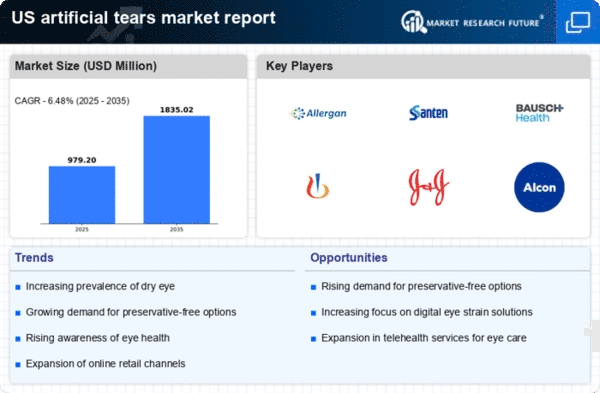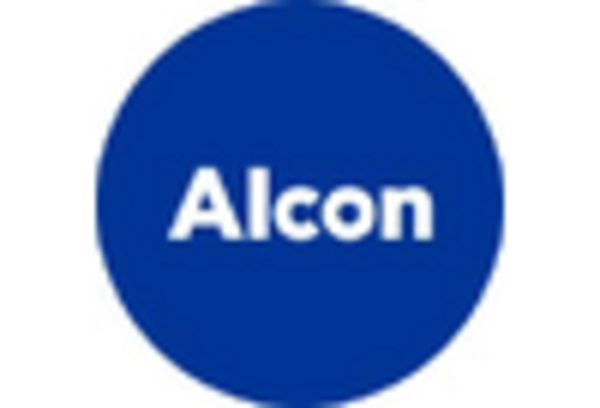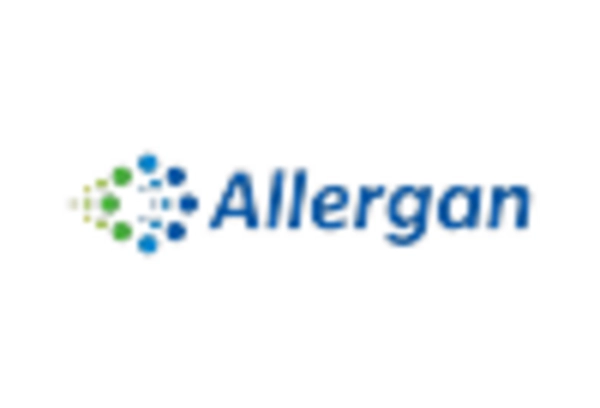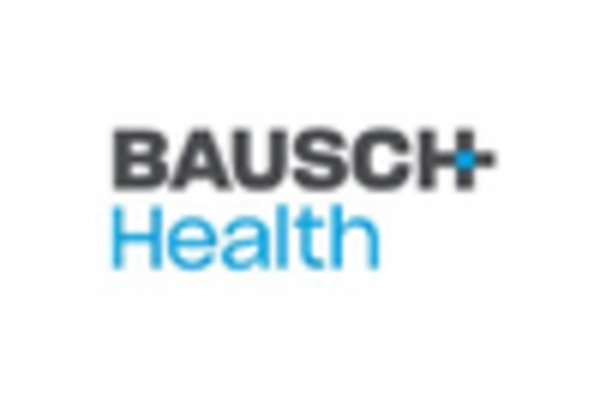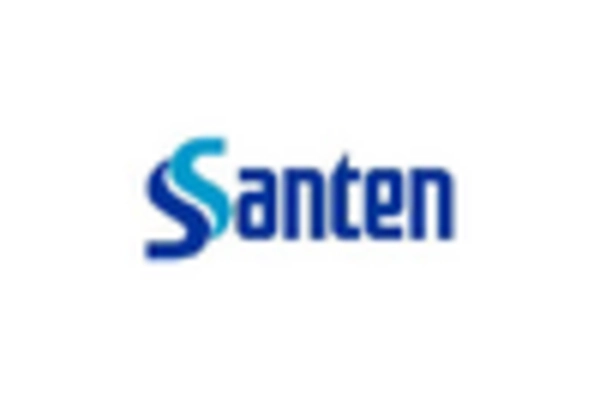Growing Awareness of Eye Health
There is a notable increase in awareness regarding eye health among the US population, which is positively impacting the artificial tears market. Educational campaigns and initiatives by healthcare professionals are emphasizing the importance of maintaining eye moisture and preventing dry eye symptoms. This heightened awareness is leading to more individuals seeking preventive measures, including the use of artificial tears. Furthermore, the rise of telemedicine has made it easier for patients to consult with eye care specialists, thereby increasing the likelihood of receiving recommendations for artificial tears. As a result, the artificial tears market is expected to benefit from this trend, with an anticipated growth rate of approximately 6% over the next few years as more consumers prioritize eye care.
Increase in Geriatric Population
The aging population in the US is a significant driver for the artificial tears market. As individuals age, they are more susceptible to dry eye conditions due to decreased tear production and other age-related factors. The US Census Bureau projects that by 2030, nearly 20% of the population will be 65 years or older, creating a larger demographic that may require artificial tears for relief. This demographic shift is prompting healthcare providers to recommend artificial tears more frequently, thereby increasing market demand. The artificial tears market is likely to see a substantial rise in sales as manufacturers tailor their products to meet the specific needs of older adults, potentially leading to a market growth of around 7% annually.
Expansion of Distribution Channels
The expansion of distribution channels is playing a crucial role in the growth of the artificial tears market. With the rise of e-commerce and online pharmacies, consumers have greater access to a variety of artificial tear products. This shift in purchasing behavior is making it easier for individuals to find and purchase their preferred brands without the need for a prescription. Additionally, traditional retail outlets are also expanding their offerings, providing consumers with more options. This increased accessibility is likely to drive sales and enhance market penetration. The artificial tears market is expected to benefit from this trend, with estimates suggesting that online sales could account for over 30% of total market revenue by 2026.
Rising Incidence of Dry Eye Conditions
The increasing prevalence of dry eye conditions in the US is a primary driver for the artificial tears market. Factors such as prolonged screen time, environmental pollutants, and aging populations contribute to this trend. According to recent studies, approximately 16 million adults in the US are diagnosed with dry eye disease, which has led to a growing demand for effective treatment options. This surge in cases is prompting healthcare providers to recommend artificial tears as a first-line therapy. As a result, the artificial tears market is projected to expand significantly, with estimates suggesting a growth rate of around 5.5% annually over the next few years. This trend indicates a robust market potential for manufacturers and suppliers in the artificial tears market.
Technological Advancements in Product Formulation
Innovations in product formulation are transforming the artificial tears market. Advances in technology have led to the development of more effective and longer-lasting artificial tears, which cater to diverse consumer needs. For instance, the introduction of novel delivery systems and enhanced viscosity agents has improved the performance of these products. The market is witnessing a shift towards formulations that provide sustained relief and comfort, which is particularly appealing to consumers with chronic dry eye symptoms. As a result, the artificial tears market is experiencing a notable increase in product launches, with companies investing heavily in research and development. This focus on innovation is expected to drive market growth, with projections indicating a potential increase in market value by over $1 billion by 2027.


